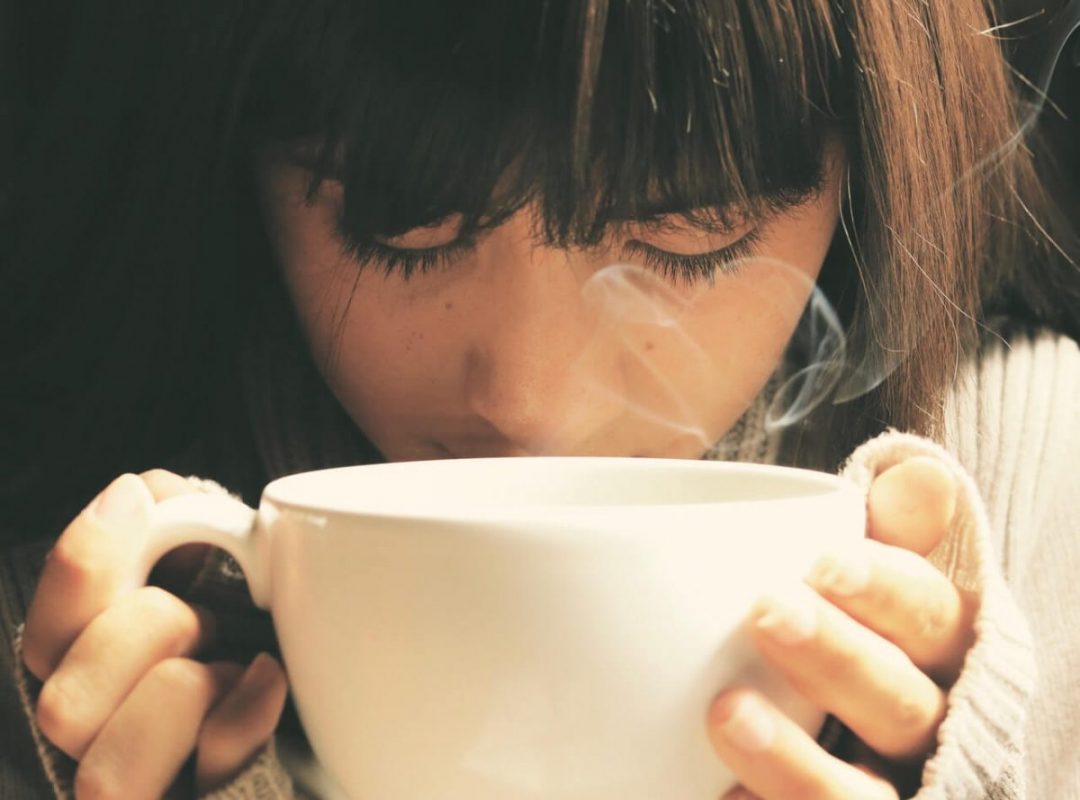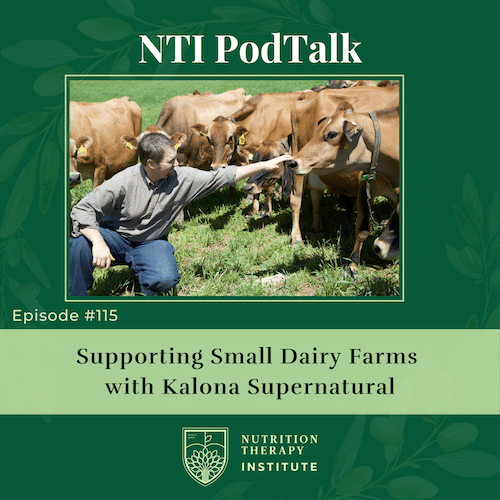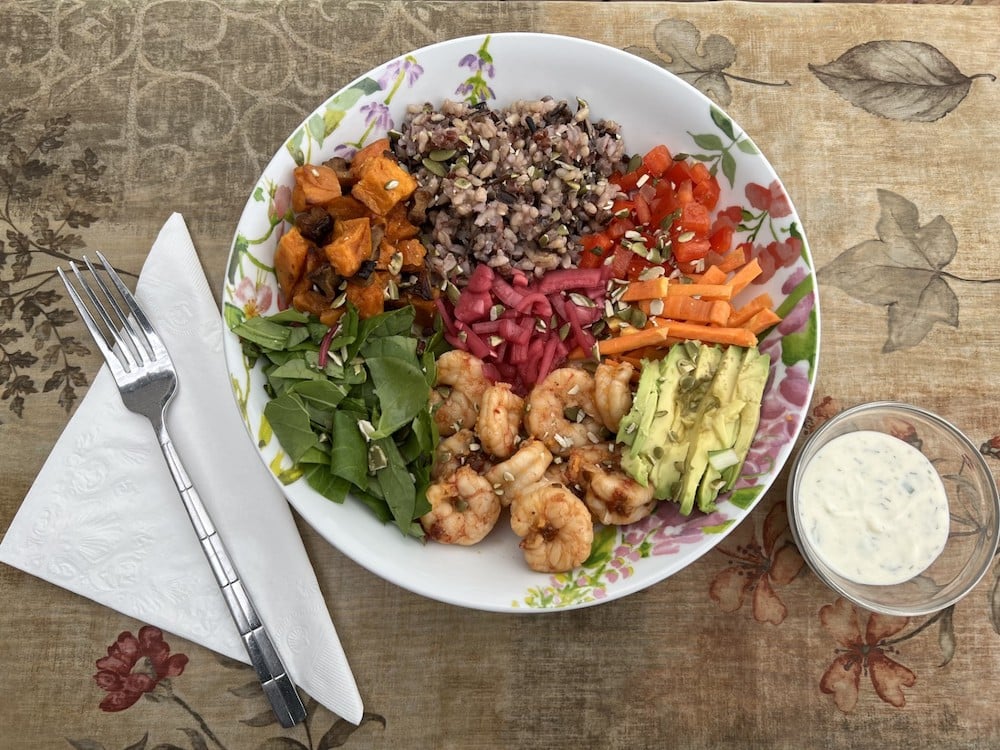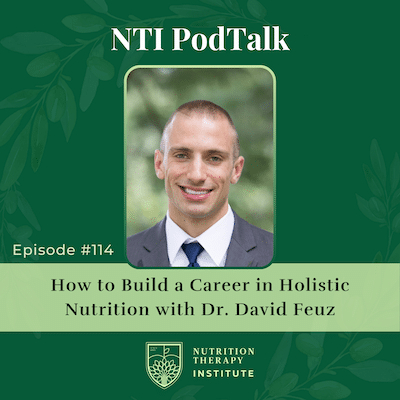
Share this post!
We are in the midst of trying times. The Coronavirus hit the world by storm, disrupting everything from daily routines to schools to jobs. The recent pandemic perfectly highlights what little control we have over the situations in our lives.
The one thing that we can control is our response to those situations.
If we allow our thoughts and energy to dwell on stressful situations, we quickly become overcome by fear, worry, sleeplessness, and even physical ailments. To avoid that fate, we need to be proactive.
Simple daily habits are critical for staying emotionally balanced during stressful times. Getting outside to exercise and sleeping regular hours are extremely helpful. Other helpful habits include drinking plenty of water, eating balanced meals, and minimizing things like sugar, caffeine, and alcohol. There are also some specific foods and nutrients that can help you manage stress and anxiety during challenging times.
How Nutrition Influences Stress and Anxiety
You may have experienced direct emotional effects of eating sweets or drinking soda—with a sugar high and then crash that causes irritability, feelings of anxiousness, and even physical trembling. On the other hand, a balanced diet can be soothing to the nerves. A recent study of 100 college students showed that 3 weeks of following a dietary pattern similar to the Mediterranean diet (emphasizing lots of fruits and vegetables) relieved symptoms of depression, anxiety, and stress.
One way that food influences stress and anxiety is through its effect on neurotransmitters. Neurotransmitters—like serotonin, dopamine, and norepinephrine—are the chemical messengers in the brain that influence feelings of reward, happiness, and calm. Neurotransmitters rely on an adequate supply of amino acids from protein-rich foods as building blocks. They also depend upon vitamins and minerals to act as enzyme cofactors for synthesis.
Other ways that food influences stress and anxiety are through interactions between the gut and the immune system as well as between the gut and the brain (the gut-brain axis). The complex pathways that connect these various systems of the body mean that food has the power to influence inflammation, brain health, stress, anxiety, and more.
Foods and Nutrients for Stress and Anxiety
Amino Acids
Amino acids are the building blocks of proteins in food and the precursors of neurotransmitters in the body. Eating a diet that provides healthy sources of protein should provide adequate amounts of amino acids for neurotransmitter synthesis.
You can boost your intake of specific amino acids by taking them in supplement form. Gamma-aminobutyric acid (GABA) is a naturally occurring amino acid that acts as a calming neurotransmitter in the brain. Although there are no clinical trials of GABA supplementation for anxiety, its physiologic role in calming the brain is well established.
Other amino acids that have been shown to promote relaxation include tryptophan, 5-HTP, and l-theanine. Tryptophan is converted in the body to 5-HTP, which is then converted into serotonin. L-theanine is found in green tea and promotes relaxation without drowsiness. Studies show that taking 200 to 400 mg of l-theanine per day can have a stress-relieving effect.
Foods rich in tryptophan:
- Nuts and seeds (especially chia seeds, sesame seeds, sunflower seeds, flaxseeds, and pistachios)
- Soybeans and other soy foods
- Cheese
- Lamb, beef, and pork
- Chicken and turkey
- Fish and shellfish
- Oat bran and oats
- Lentils and beans
- Eggs
Magnesium
Magnesium has a reputation for being the “great relaxer.” This essential mineral relaxes the blood vessels, muscles, and nerves. Magnesium is required as an enzyme cofactor for the production of many neurotransmitters and has been shown to combat stress via numerous mechanisms. A placebo-controlled trial of 200 mg of magnesium and 50 mg of vitamin B6 per day showed that this combination reduced feelings of anxiousness in women with premenstrual syndrome.
Foods rich in magnesium:
- Spinach
- Seeds (especially pumpkin seeds, hemp seeds, flaxseeds, sesame seeds, and chia seeds)
- Lima beans
- Tuna
- Brown rice
- Almonds
- Dark chocolate
- Avocados
- Yogurt
- Bananas
B Vitamins
B vitamins play an essential role as enzyme cofactors for neurotransmitter synthesis. Vitamin B6 works in conjunction with magnesium in many biochemical pathways. Vitamin B5 is important for the healthy function of the adrenal glands, which manage the body’s response to stress. Some of the world’s richest food sources of B vitamins are yeast-based spreads, like marmite and vegemite. A 2018 study showed that people who consumed these spreads experienced lower anxiety and stress scores than those who did not. The results were even more impressive for those who consumed spreads fortified with vitamin B12.
Foods rich in vitamin B12:
- Clams
- Liver
- Mackerel
- King crab
- Beef
- Fortified tofu
- Eggs
Omega-3 Fatty Acids
Omega-3 fatty acids, including eicosapentaenoic acid (EPA) and docosahexaenoic acid (DHA), support a healthy inflammatory response. In 2011, a placebo-controlled trial was published that evaluated omega-3 fatty acid supplementation in healthy medical students. The students were evaluated for symptoms of anxiety and depression on low-stress days as well as exam days. The study found that 12-weeks of daily supplementation with 2085 mg of EPA plus 348 mg of DHA reduced anxiety symptoms.
Foods rich in omega-3 fatty acids:
- Flaxseeds
- Chia seeds
- Salmon
- Walnuts
- Tofu
- Oysters
- Avocados
Probiotics
Probiotics are the beneficial microorganisms that inhabit the lining for the gut and interact with the immune system and the gut-brain axis. They have been found to promote healthy immune function and healthy inflammatory pathways. Probiotics are concentrated in fermented foods, like yogurt, kefir, and sauerkraut. In a 2015 study of 710 young adults, frequent consumption of fermented foods was associated with fewer feelings of anxiousness. Then a systematic review of studies in 2018 concluded that Lactobacillus rhamnosus had more evidence than any other probiotic strain for potentially reducing anxiety.
Foods rich in probiotics:
- Yogurt
- Sauerkraut
- Miso soup
- Kefir
- Sourdough bread
- Sour pickles
- Tempeh
Herbal Teas
Preparing and drinking a cup of herbal tea can be soothing because of the ritual, as well as because of the effects of the herbs themselves. Chamomile tea is a popular home remedy to promote relaxation at the end of the day. Although it was tested as a capsule rather than as a tea, an 8-week study of people struggling with feeling anxious found chamomile to have calming effects. Other calming herbs that can be prepared as a tea include Skullcap (Scutellaria), hops (Humulus lupulus), lemon balm (Melissa officinalis), and Valerian (Valeriana officinalis) root. Kick your feet up and take some deep breaths. Let the stress and anxiety melt away with a mug of calming tea.
Share your thoughts!
Share this post on social media and tell your followers your favorite ways to manage the stress and anxiety of uncertain times.
Related reading…
Nutrients to Alleviate Anxiety
How Happy People Survive the Dark Days of Winter
5 Healthy Foods to Boost Dopamine Production
4 Adaptogenic Mushrooms That May Help You Manage Your Stress
The Healthiest Foods (and Two Drinks) for Concussion Recovery
For more information, be sure to check out all of our great posts in the Stress & Mental Health category.
About the Author: Sarah Cook, ND, is an instructor at the Nutrition Therapy Institute. She is also the owner of ND Pen, providing branding, copywriting, and website design services for integrative healthcare practitioners. Connect with Sarah at ndpen.com.
Image: Woman Holding White Cup by Pixabay is licensed under CC0 1.0
Share this post!


















